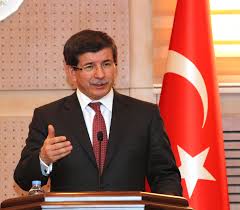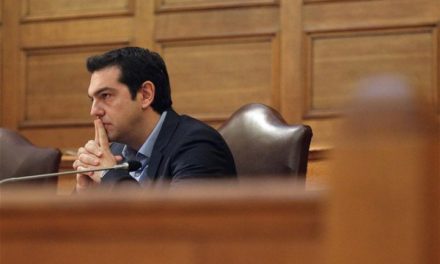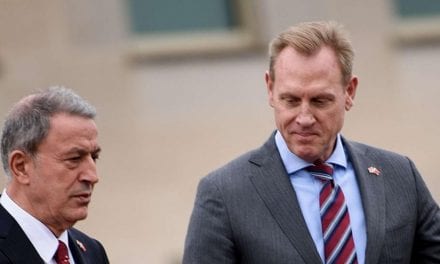How Turkey became a de facto dictatorship
With the departure of Davutoğlu, Turkey has become a de facto dictatorship, and there is now no one to stand in Erdogan’s way, writes professor Alon Ben-Meir*.
The forced resignation of Turkey’s Prime Minister Ahmet Davutoğlu suggests only one thing—President Erdogan, who is totally absorbed by his lust for power, will tolerate no one in his government to deviate from any of his political positions. Prime Minister Davutoğlu was no exception. Although the Turkish constitution grants the Prime Minister executive powers while leaving the role of the president largely ceremonial, this is not what Erdogan had in mind when he asked then-Foreign Minister Davutoğlu to form a new government following the 2014 election.
Erdogan’s ambition and aggressive drive to spread his Islamic agenda are what has determined every political move he made. Seeking to constitutionally transfer the executive authority of the country to the Presidency is the final step to legally consolidate his power, albeit he was already exercising such power throughout his tenure as Prime Minister for eleven years.
For more than 15 years, Davutoğlu served Erdogan with the utmost loyalty—first as his top foreign policy adviser, then his Foreign Minister, and for the past two years as his hand-picked Prime Minister.
Erdogan chose Davutoğlu for this post precisely because he expected him to continue to be his ‘Yes man.’ Being that as Prime Minister, Davutoğlu would assume leadership of the AK Party, Erdogan expected him to push for the transformation of the largely ceremonial Presidency into the most powerful executive position in Turkey, which Davutoğlu pursued in a lukewarm manner as this would constitutionally diminish his own powers considerably.
Not surprisingly, once Erdogan assumed the Presidency, he continued to chair cabinet meetings and even established a shadow cabinet with a handful of trusted advisors. He pointedly sidelined Davutoğlu, who quietly resented Erdogan’s usurpation of the role and responsibility of the prime minister as if nothing had changed.
The premiership became a ceremonial post and the ceremonial presidency became the all-powerful office without a formal constitutional amendment to legally grant him the absolute authority he is now exercising.
I have known Davutoğlu from the time he was the chief advisor to Erdogan and I found him to be a man of integrity and vision, always a moderating force, and committed to making Turkey a stabilizing regional power and a significant player on the international scene.
I had many opportunities to talk to Davutoğlu face-to-face about Israeli-Turkish relations, as I was actively involved behind the scenes to mitigate their conflict in the wake of the Mavi Marmara incident.
On another occasion, I arranged for Israeli-Syrian peace negotiations to take place with Turkish mediation, not only because of its proximity and (at that time) good relations with both Syria and Israel, but also because I felt that Davutoğlu would be the ideal interlocutor.
Moreover, by playing such a role, Davutoğlu was also very consistent with his commitment to realize his political philosophy of having ‘zero problems with neighbors’, which initially led to Turkey’s friendly and cooperative relations with most of its neighbors.
Erdogan’s ambition to become the kingpin of the region through his brazen political approach, however, did nothing but create problems with every neighboring country. A former top Turkish official told me that had Davutoğlu been given the flexibility to carry out his foreign policy vision, Turkey’s regional standing would be completely different today.
During the past two years, however, several conflicts between the two began to surface. Whereas Davutoğlu sought to renew the peace negotiations with the Kurdistan Workers’ Party (PKK) in the search for a solution, Erdogan not only refused but vowed to wage war until the last PKK rebel is killed.
In addition, although Davutoğlu said nothing publicly about Erdogan’s systematic attack on the free press, the jailing of journalists, and human rights violations, he disagreed with these unlawful measures and failed in his efforts to quietly persuade his boss to ease the pressure on the press.
*Alon Ben-Meir is a professor of international relations at the Center for Global Affairs at NYU. He teaches courses on international negotiation and Middle Eastern studies.



















